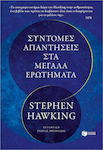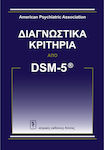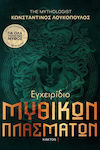Vândut de
Skroutz Asigurarea Cumpărăturilor
Setați locația de livrare pentru a vedea produsele în funcție de preferințele dumneavoastră.

Vândut de
Skroutz Asigurarea Cumpărăturilor


Cărți științifice




Cărți științifice





Cărți științifice

Prețurile sunt calculate pentru:România, Alte opțiuni de plată
The Greek crisis through the pages of the Athens Review of Books. 45 essays by 33 renowned scientists for the decade 2001-2011 of dubious prosperity, where the frenzy of debauchery prevailed. "Debauchery" in all its meanings, that is, both the unpunished squandering of European funds and loans, of public wealth, as well as the extravagance, the embezzlement, the pursuits of unbridled wealth but also of defamation of entrepreneurship, creative forces and activities, phenomena that generally fall within a -Cavafy- national life barren and insensible, that is, in the regime of Existing Populism in the country and in the minds of people during the post-dictatorship period, especially after 1981.
The first issue of the "Athens Review of Books" was released in November 2009, as the Greek crisis erupted. The major upheavals that followed explain the reason that led ARB to dedicate a significant part of its interest in economics. Two and a half years later, a corpus of dozens of essays has been formed that offer a coherent narrative and explanation of how we got here, but also where we can go from here.
Forty-five (45) of these make up the volume at hand and have a common denominator: the unprecedented economic and cultural crisis plaguing our country. The 33 authors are well-known scientists, and some of them have taken on positions of responsibility in the past, and therefore speak from experience. Therefore, the reader of the collective volume has the opportunity to compare the data, observations, conclusions, and proposals of these analysts with what our political system of power falsely and sophistically claims in order to deceive the Greek people once again and to deflect its own heavy responsibilities for the tormenting reality that the Greek citizens are experiencing and will continue to experience for many more years. From this comparison, the central meaning of the volume emerges naturally, which is nothing but the observation of this very deception.
The system of power in Greece is formed by a ruthless alliance of oligarchic nature: MPs and party leaders, who feed on public funds, media-interwoven state-subsidized entrepreneurs, guilds and trade union circuits, mass "information" media and numbed citizens, nepotism and opportunism, in short, coincidentia oppositorum, in other words: collaboration of extremes for their own benefit. It would be unforgivable naivety to think that this system has not developed to the maximum extent the instinct of self-preservation. And now that the fraud has been revealed, the bubble has burst, the system is rolling with mastery, shifting the blame to foreign "usurers" and to the entire population ("We all ate it together!"). Therefore, the most amazing achievement of the Greek system of power is that it has managed, in the consciousness of a high percentage of public opinion, to transfer to others a large part of its own responsibilities for what happened and is happening, and above all to our international funders.
Studying the texts of this volume, the reader will find the economic data and facts that prove this claim.
It will approach the real causes of Greece's bankruptcy in 2009-2010 and will find that the myth believed by many of our fellow citizens, that "the banks and markets conspired against us", is both childish and foolish. This myth is invoked for obvious reasons by those who borrowed 300 billion euros and created an annual deficit of 36 billion euros (with GDP at that time 230 billion euros) and a corresponding astronomical current account deficit. However, we must point out that the Greek crisis has the "malice" to hide lessons even for the dogmatic lovers of the markets.
The sober reader will therefore find that "loan sharks never came to take our national wealth". A loan shark is the one who asks for a higher interest rate when you are in need. On the contrary, they asked us for half the interest rate of the market. And then, while the market interest rate skyrocketed to 30%, they brought it down to 3.5%. That is, as much as France borrows today and almost half of what Italy borrows. The Europeans lent us on favorable terms, not because they are above money, but because they weighed the cost of Greek bankruptcy for the common currency and the negative consequences this development would have on the European Idea. Their decision was probably made coldly, as a constituent of their interests and based on the political realities they faced.
It will also find that the troika bears some responsibility for the failure of the program, because it did not insist on the implementation of the memorandum it had dictated. On the contrary, it succumbed to the reactions of the two parties in power who have successfully tried so far to maintain their mechanisms in the public sector, in organizations and in DEKO. The state-fed left - because it also participated in the exercise of power to the extent of its percentage - stood as an accomplice of the two parties, both the dogmatic and the so-called anti-establishment, as well as the pseudo-modernist.
Unfortunately, this volume is destined but cannot answer the crucial question: will our corrupt political system of power ultimately survive? Or will the basic law prevail that you can deceive many people for a while, but you cannot deceive everyone for all time? - and we have the impression that a ray of light is discernible in the deep darkness. [...]
(from the preface by Manolis Vasilakis)
Specificatiile sunt colectate de pe site-urile oficiale ale producatorilor. Va rugam sa verificati specificatiile inainte de a finaliza achizitia. Daca observati vreo problema, puteti raportează aici.
Capodopera. Cuprinzător. Este incredibil de interesant. Îl citești foarte ușor, caracterizat de energie și claritate într-o măsură atât de mare încât nu îți dai seama cât de repede schimbi paginile.